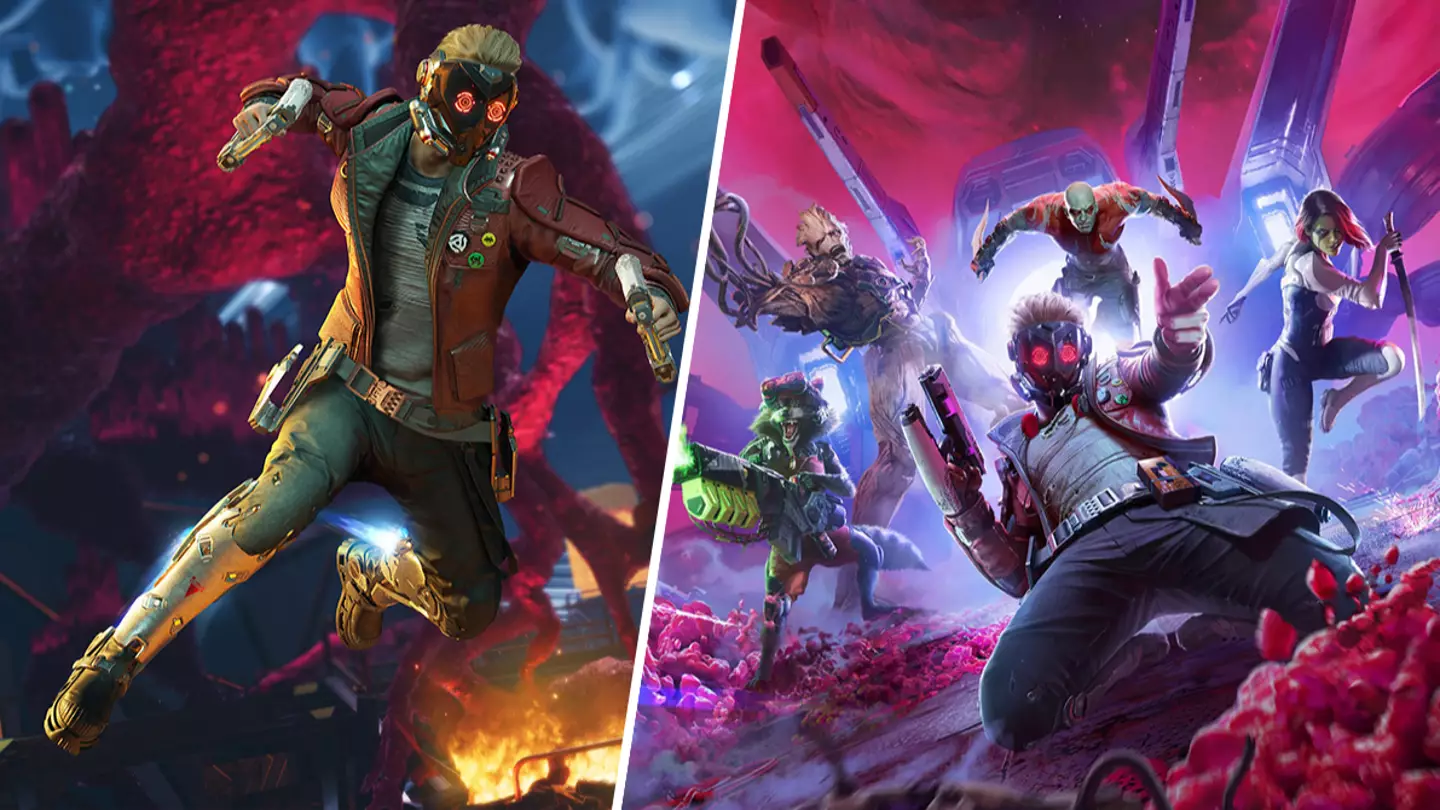
Now that the credits have rolled on my playthrough of Marvel’s Guardians of the Galaxy, I can fully agree with Dean, who wrote our review of the single-player action-adventure affair: it’s a very good game, indeed. So far as video game adaptations of Marvel franchises go, it’s just about up there with the best of them - maybe a little below 2018’s Marvel’s Spider-Man but comfortably ahead of most. But that’s not to say it’s perfect, by any means - and since we’re now in the era of video game director’s cuts, I’ve a few ideas as to how this spacefaring, wisecracking comic romp with added ‘80s cock-rock could be improved.
This is your spoiler warning: I will be getting into the plot of Marvel’s Guardians of the Galaxy, and looking at its ending.
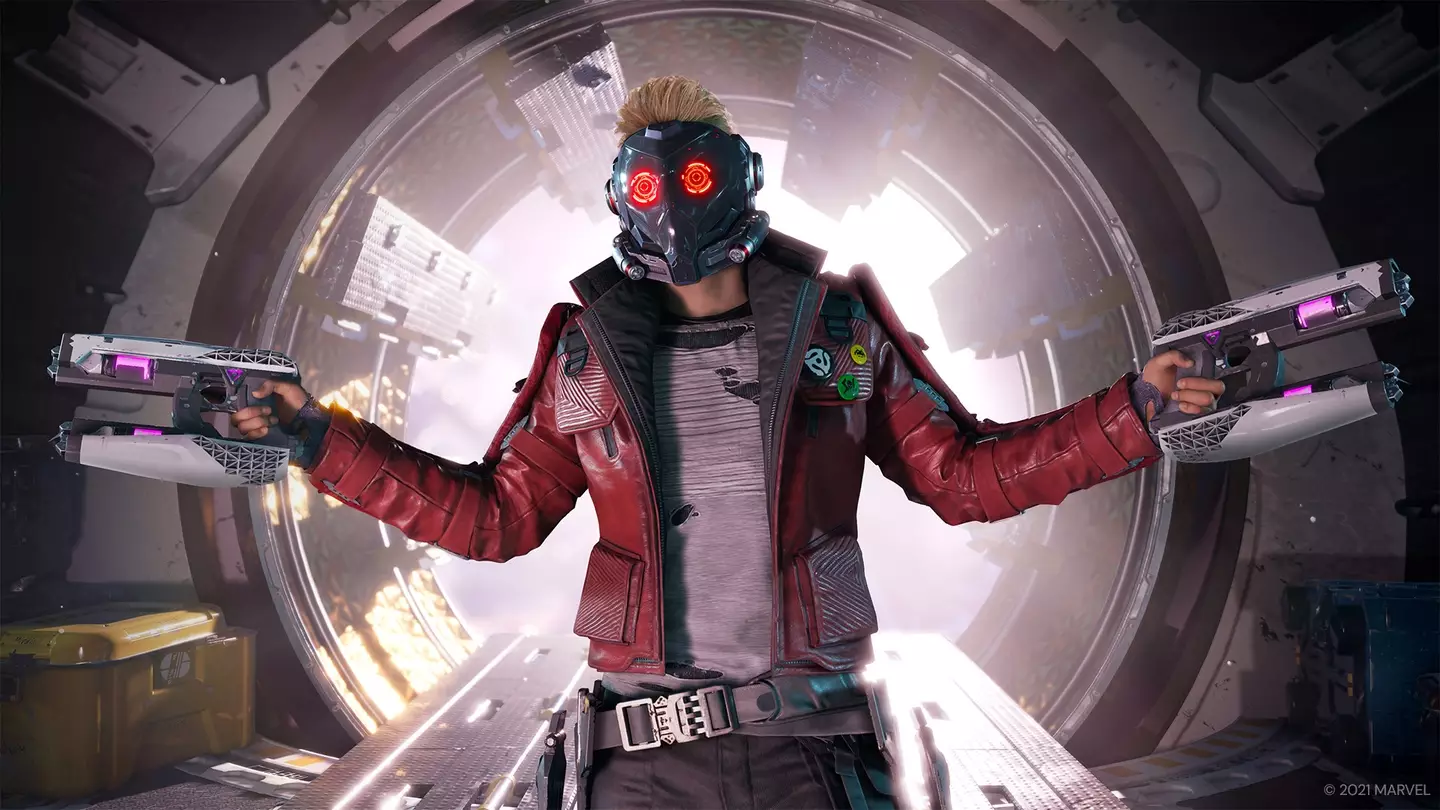
Cut The Combat By A Quarter, At Least
Advert
GOTG’s most heinous padding-out-the-run-time is the number of enemy encounters it places between plot-progressing junctures (usually some sort of cutscene, or conversation in a loading-other-stuff-in lift). Start to finish, this game will take you between 15 and 20 hours to crack, depending on the difficulty you select. But developer Eidos-Montréal, rather than include only meaningful instances of high-stakes combat, simply throws in multiple waves of the same few enemy types in several of its linear stages.
I don’t actually mind the combat in GOTG - Peter Quill steadily unlocks some cool elemental abilities for his blasters, and the other Guardians acquire tide-turning skills that can really help you out of a jam; and then there are the huddles, which can provide significant stats boosts alongside a switch in soundtrack - but there’s way too much of the ordinary stuff. Late on in the game, with the Guardian’s pretty powered up, these altercations don’t feel like power fantasies - they’re dreary filler that’s getting in the way of what’s next. Lose a chunk of the combat, take those 15 hours down to 12 or so, and we’re talking.
Check out Guardians of the Galaxy in action in the video below
Sometimes It’s Better To Say Nothing At All
Advert
And while we’re on the topic of talking, for the most part the near-constant banter between the Guardians is a hoot. This is a game with some very good writing, and even the relatively trivial exchanges feel genuine, like the creative team has lived and breathed these characters in bringing them to life. But the chatter extends to combat - and sometimes that combat drags, as boss encounters necessitate steady chipping away at a huge health bar. Cue: the same few remarks from Drax or Gamora which, while appreciated the first dozen times, rather grate after that. Could we not just kill these things, quietly?
Flashbacks Are Fun But They Go On Too Long
Narrative exposition: this game has its share of it, and some. We get insights into Peter’s childhood, and how he came to be on this journey through the stars, and the fate of his mother. And it’s welcome - to a point. There are only so many times we can bounce backwards on the timeline before it compromises the action of the present, and GOTG comes close to pushing that limit.
There’s a linear sequence that plays out in Peter’s teenage home, but it’s split into multiple parts and goes on too long - especially when we know what the conclusion of it is going to be, because contemporary events have already made it pretty clear. There’s also some annoying, that’s not quite right memory tomfoolery in another part of Peter’s muddled nostalgia, in this case very misplaced and corrupt, which is unexpectedly evocative of how the later parts of Life is Strange: True Colors, another 2021 game published by Square Enix, play out. A similar sequence inside Drax’s memories also drags courtesy of some of those repeated enemy waves - it's not that squashing slugs is hard, it's just boring.
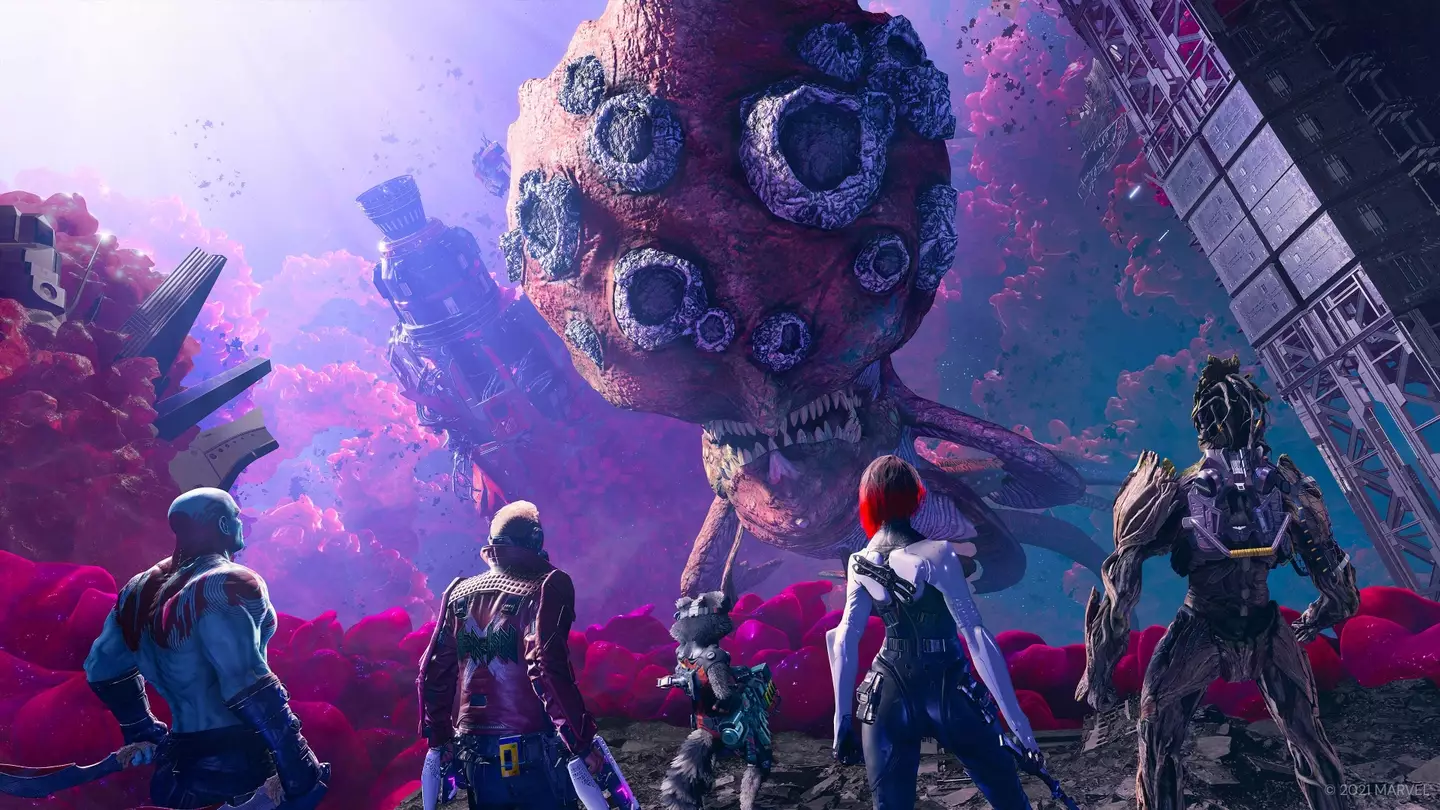
I Know I Already Mentioned The QTEs, But The QTEs Are Rotten
Advert
I wrote a whole piece about how the quick time events in the first two chapters of GOTG are bad - and they don’t improve later in the game, with different buttons requiring different kinds of input throughout. (Okay, it’s the same selection of them - but there’s not a great deal of logic to why they’re the way they are.) The whole pressabuttonfasttograbaledge but also carefully, time it, just right, at another, equally precarious moment, is just annoying as Hala. A streamlined approach would have made for fewer interruptions - and long loading times (playing on Xbox One X) make QTE failures all the more frustrating.
The Space Battles Suck The Energy Out Of Proceedings
The Guardians’ ship, the Milano, is an important location in the events of the game. It’s where the crew gets to enjoy some earned downtime, a little less action and a little more conversation. Where Peter can flick through his record collection and annoy his colleagues with New Kids on the Block or Mötley Crüe (some genuinely good tracks are also available - and some of the Huddle selections are chef's kiss perfect). Where the fridge door of all fridge doors simply refuses to stay closed. It’s also where some crucial moments in the plot play out, as make-or-break decisions get made. Playing through sequences set inside the ship is never not fun, from the ducking into each Guardian’s quarters to check out character-relevant collectibles - which open new dialogue options - to the cockpit-set on-screen comms with a variety of friends and foes.
But the gameplay set outside the ship, when you’re controlling the Milano through a handful of dogfights or simply doing your best to not smash it into the side of a mountain, just never clicks. Basic in the extreme - like, almost SEGA's After Burner basic - and yet horrible to control, too, these sequences could be removed and the game would lose nothing of memorable importance. At one point you take control to fly into the bad guys’ flagship, and it’s a sequence so short that a cutscene would have sufficed. I guess someone at Eidos-Montréal was too fond of these sections to take them out - but over the course of an already overlong game, they really slow the pace down.
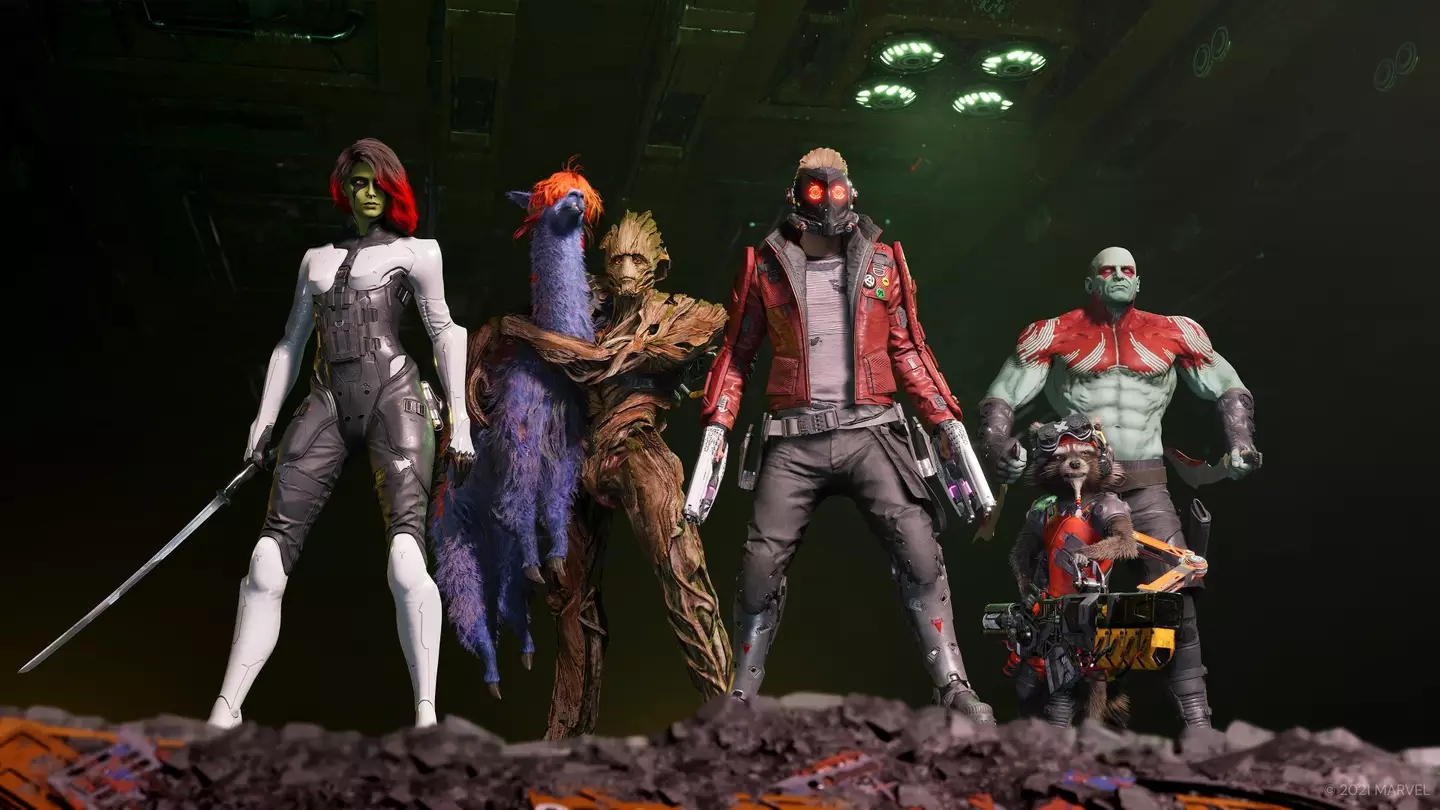
More Mantis, Less Llama
Advert
Actually, there’s one annoyance on the inside of the ship: the llama. The game’s very first chapter sees the crew rescue a brightly coloured llama-like beast, and they subsequently become the ship’s pet. The animal’s impact on what follows is largely insignificant save for two moments: one, an annoying (but mercifully brief) sequence where you have to use the voices it likes and doesn’t like to steer the fluffy fiend to a certain location, each character calling out from behind locked doors; and later it provides the accidental inspiration for Peter and company’s next course of action (animals… beasts… ah yeah, that person we met earlier, remember her?).
I’ve looked the llama up to see if there’s some sort of deeper lore to its existence in this game, but nope - it’s a character, a creature, designed for this game and this game alone. A character who is very much a part of the wider GOTG and Marvel universe, however, is Mantis - and for my money we do not get enough of her in this game.
Mantis is always a treat to be around, whether piggybacking an under-her-control Drax or projecting motivation and instructions straight into your brainbox, and a neat later-game twist would have been to add her to the player-controlled party - especially when there are times when the full crew isn’t present, having split up for whatever reason. Could she not have put Drax in a comfy doze and chipped in with some combat herself? Or more actively took the fight to Adam Warlock’s darkest side much, much later on, rather than cheerlead from the ether? I get that she isn’t really known as a GOTG member in the Marvel Cinematic Universe, but she’s fully affiliated in other stories, and her slight screen time here doesn’t quite match up with her genuine importance in the overall narrative arc.
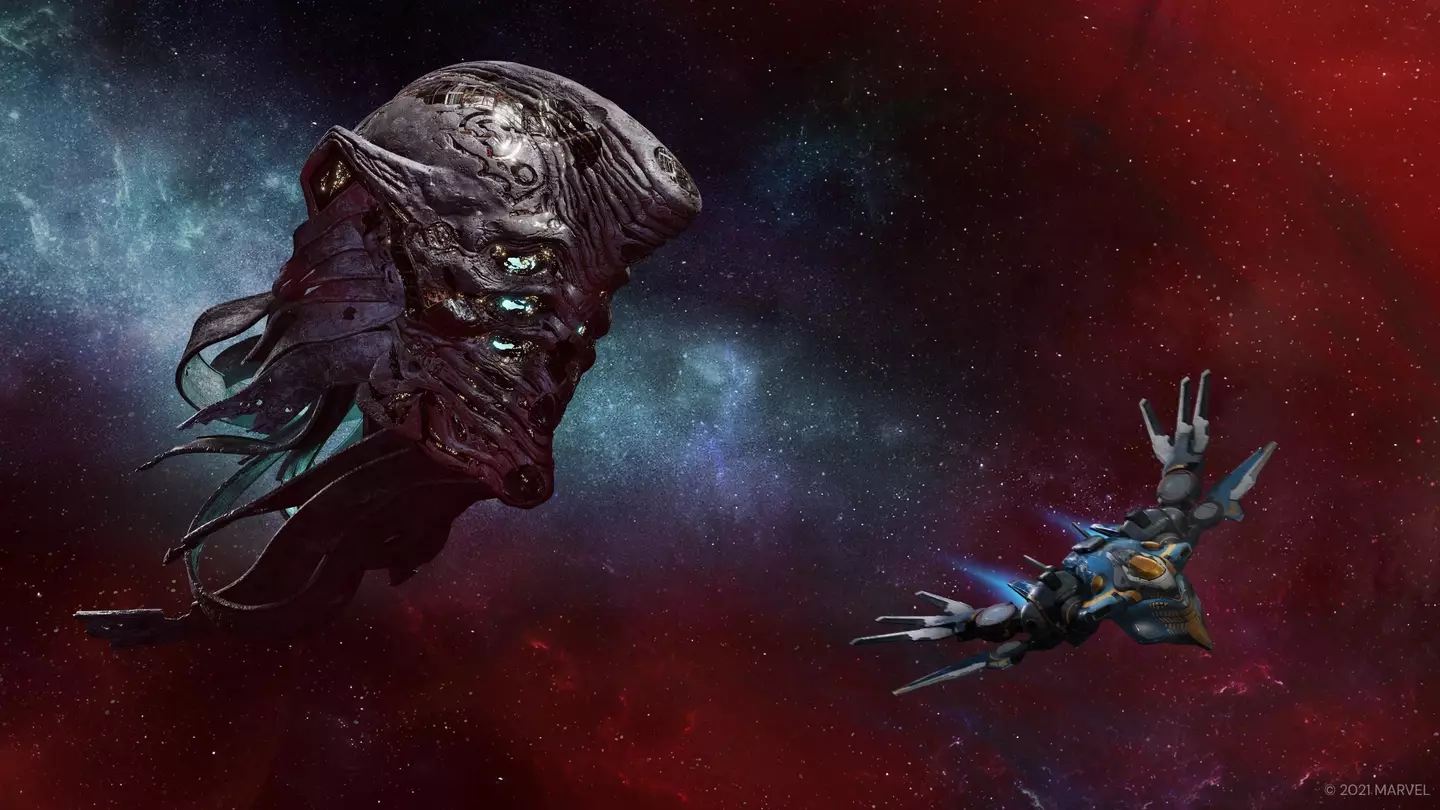
That Fake-Out Ending Kinda Sucks, Actually?
Advert
Hey, I said there’d be spoilers. Speaking of Adam Warlock and his twisted, evil Magus side, the game's actual Big Bad… That ending isn’t the best, is it? We get to defeat the Universal Church of Truth, and the credits begin to roll in a something’s-not-right fashion only for the player to be thrown back into the Milano and… hey, what is up with that Warlock guy? Has he caught a sniffle? Something he ate? Oh, nah, it’s simply the cue for the Boss after the Boss, in a setting that… I mean, is Magus actually crushing actual planets? Are we taking on a god here, or...? Whatever, point your guns and shoot at the giant angry dude until you can Soul Stone his ass - via more terrible QTEs, no less - and we can all go home. Plus side: there’s more than enough good in Guardians of the Galaxy, and enough plotline teasers (if not actual loose ends), for a sequel to be very welcome indeed. Just, y’know, don’t feel you need to keep everything on that drawing board intact.
Featured Image Credit: Square Enix